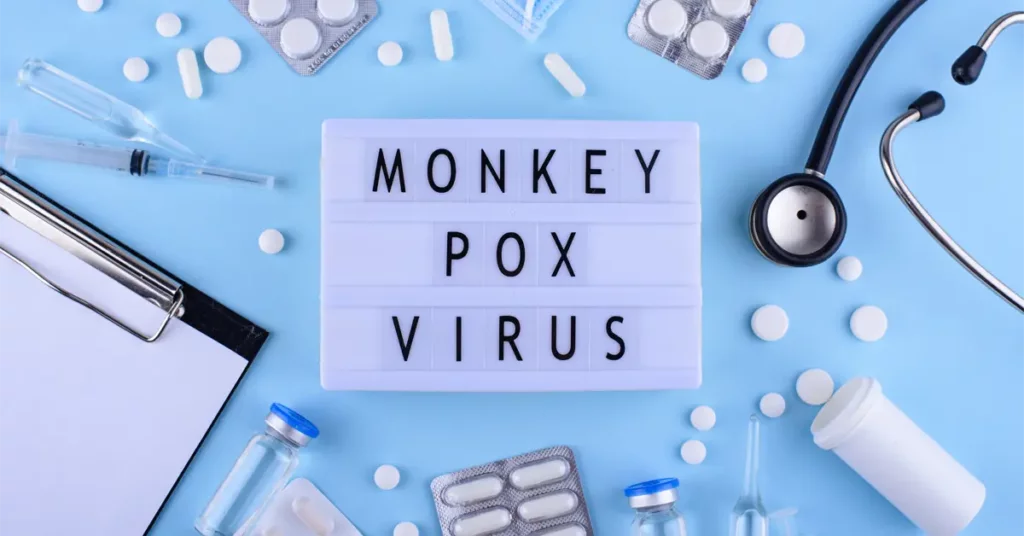As of July 29, 2022, approximately 70 countries where monkeypox is not endemic had reported outbreaks of the viral disease, with confirmed cases exceeding 20,800, prompting the World Health Organization (WHO) to declare the outbreak a global health emergency. Here are the six facts you need to know about monkeypox:
What is monkeypox?
Monkeypox is an uncommon disease caused by a monkeypox virus infection. Monkeypox virus is a member of the Orthopoxvirus genus in the Poxviridae family. The first human case of monkeypox was recorded in 1970 in the Democratic Republic of the Congo during a period of increased efforts to eradicate smallpox. Monkeypox has been documented in several other Central and Western African nations since then. People have contracted monkeypox outside of Africa due to foreign travel or imported animals, with cases reported in the United States, Israel, Singapore, and the United Kingdom. Monkeypox’s natural reservoir has yet to be discovered. African rodents and non-human primates (such as monkeys) may carry the virus and infect humans.
What are the symptoms of monkeypox?
Monkeypox symptoms in people are similar to but less severe than smallpox symptoms. Fever, headache, muscle aches, and tiredness are among the symptoms of monkeypox. The fundamental distinction between smallpox and monkeypox symptoms is that monkeypox causes lymph node swelling, but smallpox does not. Monkeypox has a 7-14 day incubation period (from infection to symptoms), although it can be as short as 5-21 days.(2) The disease starts with:
- Fever
- Headache
- Muscle pain
- Backache
- Swollen Lymph nodes
- Chills
- Exhaustion
The patient develops a rash for 1 to 3 days (sometimes longer) following the onset of fever, which usually starts on the face and spreads to other regions of the body. Before dropping off, lesions go through the following stages:
- Macules
- Papules
- Vesicles
- Pustules
- Scabs
The disease lasts about 24 weeks on average. Monkeypox has been demonstrated to kill one out of every ten people who develop the disease in Africa.
How is monkeypox transmitted?
The virus is transmitted when a person comes in touch with the monkeypox virus from an animal, a human, or a contaminated object. The virus enters the body through broken skin, the respiratory tract, or mucous membranes like the eyes, nose, or mouth. Those who are now at risk of developing monkeypox include those who:
- Traveled to a place where monkeypox cases or exposures have been reported (within 21 days);
- Contact with someone with a similar rash or a confirmed or suspected case of monkeypox; and
- Persons who identify as men and have sex with other men.
How do you prevent from being infected with monkeypox?
A variety of precautions can be taken to avoid infection with the monkeypox virus:
- Separate infected patients from those who could become infected.
- After coming into contact with infected animals or humans, wash your hands thoroughly.
- Avoid coming into contact with animals that may have the virus.
- Avoid direct touch with any materials that have come into contact with a sick animal or patient, such as bedding or clothes.
- When caring for patients, wear appropriate personal protective equipment (PPE), such as a gown, gloves, respirator, and eye protection.
How is monkeypox treated?
- Monkeypox is relatively mild, and most people recover without therapy in a few weeks.
- However, because the infection can spread through intimate contact, it’s critical to isolate yourself if you’ve been diagnosed.
- If your symptoms are moderate, you may be asked to isolate yourself at home.
- If your symptoms are severe or you’re at a higher risk of becoming extremely ill (for example, if your immune system is compromised), you may need to stay in a specialized hospital until you recover.
- A vaccination may be recommended to minimize your chances of becoming seriously unwell.
What can be the potential use of remote patient monitoring for monkeypox treatment?
Remote patient monitoring (RPM) devices can be used to remotely gather, evaluate, monitor, and manage disease symptoms, such as monkeypox. The use of RPM also decreases the exposure to other individuals, including healthcare professionals who may be infected with the disease.
Takeaway
Monkeypox is a public health problem since it is similar to smallpox and can be transmitted through diseased persons, animals, and contaminated materials, but it is less transmissible than smallpox. Reports are now emerging regarding increased infection of monkeypox in several areas around the world.
WHO anticipates that as surveillance in non-endemic countries will expand and more cases of monkeypox will be found. Immediate steps will focus on providing accurate information to people at risk of monkeypox infection to prevent further spread.
References
- Multi-country monkeypox outbreak in non-endemic countries. (2022, May 21). Multi-Country Monkeypox Outbreak in Non-Endemic Countries; www.who.int. https://www.who.int/emergencies/disease-outbreak-news/item/2022-DON385
- About Monkeypox | Monkeypox | Poxvirus | CDC. (2022, June 9). About Monkeypox | Monkeypox | Poxvirus | CDC; www.cdc.gov. https://www.cdc.gov/poxvirus/monkeypox/about.html









